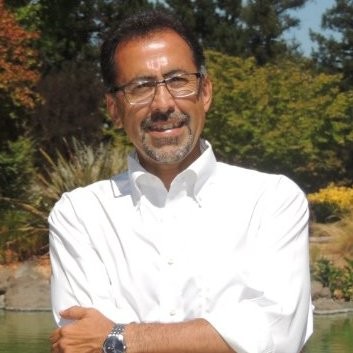
This article on business and policing was co-written with Mackinzee Macho, a program manager in the Regenerative Justice Cities and Regenerative Design Programs at the Foresight Lab. Macho has delivered podcasts and written essays highlighting her program areas and plans on teaching courses and convening dialogues on these topics as well. She is a candidate for the Bachelor of Arts in Environmental Science at Carthage College. She is currently considering the pursuit of graduate studies in International Diplomacy.
The social license is an unspoken set of “golden rules” for social interactions. This shared ethical framework guides our behavior, influences our day-to-day relationships, and determines what is appropriate and culturally acceptable. In the wake of the 1992 Rio Earth Summit, a cognate of this idea emerged in the business world: the social license to operate, meant to communicate a form of social contract between the world of commerce, companies and greater society.
In practice, the social license to operate is an empty notion. Monstrously egregious conduct goes largely unpunished (think: Union Carbide/Dow in Bhopal in 1984; BP/Deepwater Horizon in the Gulf of Mexico in 2010, or the actions of any predatory bank in the run-up to the global financial meltdown in 2007-2008). Self-serving corporate policies and actions persist in the business world simply because many government regulators have neither the spine, the tools, nor the clear-eyed sense of honor to close down businesses that operate like predators in the larger societal ecosystem.
In parallel to these realities, we find ourselves at a cultural moment of reckoning regarding another social license to operate. Police departments across our land periodically (rarely, it must be said, but repeatedly) engage in predatory killings of innocents “in the line of duty.” As we have written elsewhere, we acknowledge that the overwhelming majority of peace officers do some of the most dangerous, thankless work in society with dignity, honor, and selflessness. But the social license to wield deadly force granted to police departments in the U.S. surely is ripe for a critical and authentic review.
Perhaps it is worth revisiting what the social license means in both contexts. As predatory policing and crimes committed with continuing levels of impunity by sworn peace officers continue to mar the national landscape, perhaps a more formal social license for policing is in order. And companies continue to pursue profit (real and artificial) at all costs, many of them most recently profiteering on the back of conditions created by the COVID-19 global pandemic.
To some extent, the dozens of legal requirements imposed on companies form part of the social license to operate. Yet the time has long since passed when companies met their duties to society by simply following the law. Performance above legal minimums (which many companies rightfully seek and achieve) is also implicit in the informal contract between companies and society.
Still, the evidence is overwhelming that companies continue to flout many of these laws. And even when found to have done so, the penalties are often miniscule. Awaken, please, to the fact that many companies — including many that you likely admire — actively and transparently budget for regulatory and other legal violations as a “cost of doing business.”
And policing: how do we finally get our cultural arms around the pandemic of institutional racism and improper use of force by peace officers. Again, we have offered part of the prescription elsewhere. Beyond a national truth and reconciliation process, what more can be done about this heartbreaking pattern of a small minority of sworn police officers openly shredding the essence of the social license to operate?
One option: formal licensing of police. In many civilized democracies, police officers do not carry handguns. We acknowledge that even suggesting the police not carry weapons of deadly force in the wild, wild West culture of the U.S., where the myth that the 2nd Amendment to the constitution sanctions citizens packing assault rifles “for sport,” is heretical.
In light of these realities, policing with a default to permitting the use of deadly force should end. Traffic offenses and expired registrations are not capital offenses. And yet dozens of African American and Hispanic citizens have died in just this context, in just the last 10 years.
Police officers could, and should, instead be armed as a matter of course with tazers, mace, and batons. Then, through specialized courses of study, and demonstrated allegiance to the highest standards of policing (to wit, service and honor), peace officers could earn the right to carry sidearms.
We could envision a future where corporations’ business models and policing techniques, training, and models of interaction are no longer extractive, racializing, imperialistic and fear-inducing, but instead are structured to engage and align, build community and trust, and truly constitute being in humble service of community and the commonwealth. Corporations will not exist, in such a future world, to merely turn a profit and policing will not be viewed as predatory.
We will close with some perhaps outmoded and quaint ideas from history regarding the social license.
In the sixteenth century, the Dutch cleric and philosopher Erasmus of Rotterdam wrote a treatise on the duties of kings. He argued there that the king is a servant of the people and had a high moral calling to rule according to the principles of honor and sincerity. This contradicted his contemporary, Machiavelli, who wrote that it was better for a ruler to be feared than loved.
Erasmus implored his readers that a ruler should instead be loved, not feared. And that they should cultivate the habits of gentleness, dignity, and public service. Perhaps we can imagine a day when companies in their every gesture and effort, and sworn police officers, embody these attributes of service and honor as a condition of their right to exist and move within civil society.
Image credit: Gerd Altmann/Pixabay

Edward Quevedo is the Director of Regenerative Design, and the Head of Practice, at The Foresight Lab.














